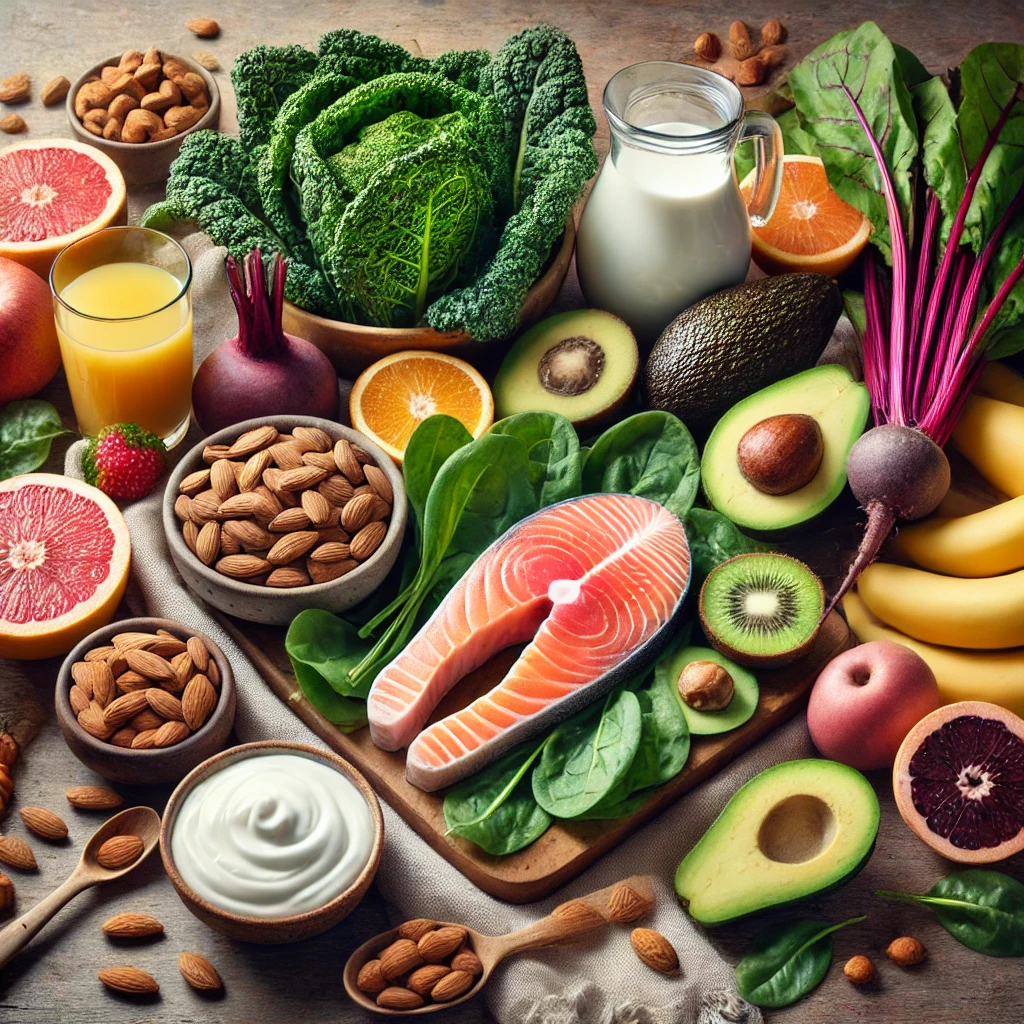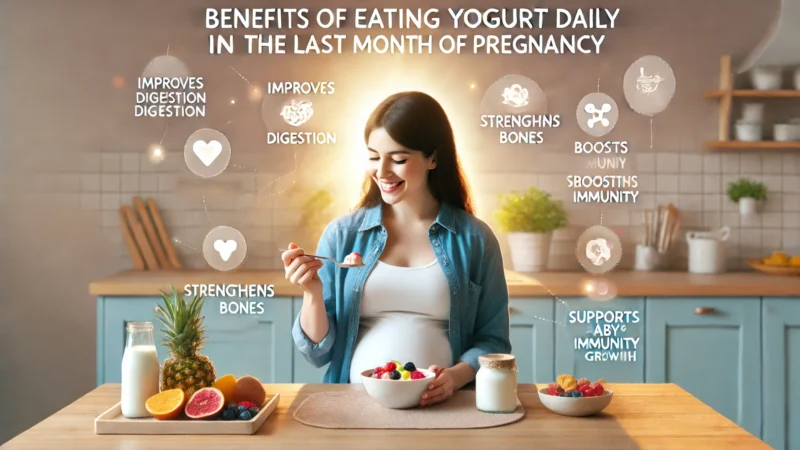Proper Diet for Pregnant Women with Hypertension

1. What is Pregnancy-Induced Hypertension?
Pregnancy-induced hypertension is high blood pressure that occurs during pregnancy, usually after the 20th week. This condition can be dangerous for both the mother and the baby, leading to complications such as preeclampsia, preterm birth, and fetal malnutrition. A well-balanced diet helps control blood pressure effectively and promotes overall health.
2. The Impact of Diet on Pregnancy-Induced Hypertension
Nutrition plays a crucial role in managing blood pressure, helping to:
- Reduce the risk of complications: Lowers the chances of preeclampsia, protecting the health of both mother and baby.
- Improve cardiovascular function: Reduces the strain on the heart and supports blood circulation.
- Maintain a healthy weight: Prevents obesity, which increases the risk of high blood pressure.
- Provide essential nutrients for fetal development: Ensures the baby’s healthy growth and development.

3. Essential Nutrient Groups
3.1. Potassium
- Helps eliminate excess sodium, lowering blood pressure.
- Found in: Bananas, sweet potatoes, avocados, watermelon, spinach.
3.2. Calcium
- Helps maintain stable blood pressure and supports fetal bone development.
- Found in: Milk, cheese, dark leafy greens, seafood.
3.3. Magnesium
- Relaxes blood vessels and helps control blood pressure.
- Found in: Almonds, pumpkin seeds, beans.
3.4. Fiber
- Lowers cholesterol and improves digestion.
- Found in: Whole grains, vegetables, fruits.
3.5. Vitamin C
- Boosts immunity and protects blood vessels.
- Found in: Oranges, grapefruit, papaya, strawberries.
3.6. Protein
- Essential for fetal development and stabilizing blood pressure.
- Found in: Eggs, lean meat, fish, tofu.
4. Foods to Eat and Avoid
Foods to Eat:
- Leafy greens: Kale, spinach, lettuce.
- Low-fat yogurt: Provides calcium and beneficial probiotics.
- Root vegetables: Sweet potatoes, beets help stabilize blood pressure.
- Salmon, avocados, fresh fruits: Rich in omega-3 and essential vitamins.
Foods to Avoid:
- Fast food and processed foods: High in salt and preservatives.
- Carbonated drinks, alcohol: Can increase blood pressure.
- Fried and oily foods: Raise the risk of cardiovascular disease.
5. Tips for Pregnant Women
- Eat smaller, frequent meals: Avoid overeating in one sitting.
- Drink plenty of water: Prevents dehydration.
- Engage in light physical activity: Walking and yoga improve blood circulation.
- Monitor blood pressure regularly: Adjust diet and lifestyle as needed.
Conclusion
A healthy diet not only helps control blood pressure but also ensures the well-being of both mother and baby. Consult a doctor for a personalized meal plan that best suits your health condition.






